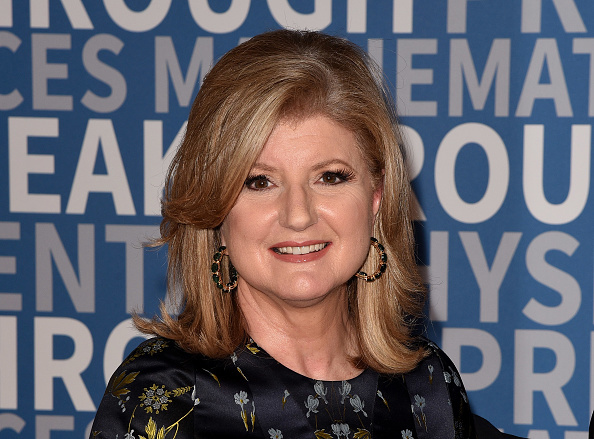Well-being = performance
The idea that performance improves when we prioritise well-being, and that a burnout culture is bad for business, will move into the realm of settled fact. Sure, there will still be outliers and denialists, as there always are, who continue to celebrate burnout culture or congratulate employees for being always on and answering texts in the middle of the night. But leaders who incentivize burnout by bragging about how little sleep they get will sound increasingly retrograde in 2019.
The disruption of AI is here, but so are the opportunities
The conversation around AI will no longer be just about the jobs it will replace. This conversation is hugely significant and will continue, but increasingly apparent will be the opportunities AI creates for new jobs based on what can’t be automated: creativity, complex decision-making, empathy, compassion, engagement, and caring. So, yes, while AI will cost jobs, it’s a chance to rethink what we value: humans working and caring for other humans.
Knowing how to work intensely but avoid burnout will be a job qualification
As AI and automation advance, they’ll put a premium on qualities like creativity, decision-making, compassion, and collaboration—qualities that are all directly diminished if your work is fuelled by stress and burnout. Given the increasingly widespread understanding about the connection between job performance and well-being, how well people can take care of themselves will become both a job qualification (something to be advertised during a job interview) and a job requirement (something to be solicited during job interviews). This will be the case at every level, including when companies are looking for CEOs and C-Suite leaders.
EQ over IQ
As the premium on uniquely human qualities grows, this will make EQ—emotional intelligence—at least as important a metric for hiring and advancement as IQ. What employers will look for in the recruitment process will be less about Ivy League degrees and more about signs of empathy, connection to others, and the ability to communicate. Yes, the mind will still be important, but the heart will be increasingly important, too.
HR goes from the break room to the boardroom
Human Resources has long been relegated to the margins of the C-Suite. But as it becomes clearer that human capital is the most valuable resource a company has, HR and the people managers responsible for nurturing that human capital will move to the center of the business. Smart CEOs will come to regard the CHRO as an indispensable partner in every aspect of the business.
Relationship with technology as central to well-being and performance
As the idea of employee well-being becomes more central to business, our relationship with technology—both at the workplace and at home—will be seen as central to our well-being. Established elements of health (including mental health)—exercise, nutrition, sleep, social connection—are all undermined by our addiction to technology. So helping employees create a healthier relationship with technology—even outside the office—will be a key business concern.
IT will focus on maintaining systems of disconnecting as well as connecting
The IT focus in most companies has been on maintaining and updating the means of connection and communication—emails systems, Slack, video conferencing, etc. The new role of IT will be about helping employees unplug and recharge and therefore maintaining and updating the means of disconnecting!
This will involve the increasing use of AI, wearables, sleep trackers, behaviour change apps and software, and tools that help us ensure that we’re in control of our technology—not the other way around. So in addition to using technology to help employees connect with each other, companies will use it to help employees connect with themselves.
Employee engagement as a benchmarks of company health
As more employers realise how strongly employee engagement correlates to the bottom line, it will be seen—rightly—as a leading indicator, or warning sign, of company health. Tracking employee engagement will predict downstream metrics like employee performance and retention.
Goodbye annual performance reviews
In a healthy company culture, feedback is immediate, continuous and runs both ways. At Thrive Global we call this Compassionate Directness. It’s about empowering and teaching employees to speak up and surface problems as they come up, which enables continuous course-correction and growth. And it’s much more effective and efficient than laborious and fraught performance reviews at set intervals.
Millennials leading the fight against burnout
As the viral BuzzFeed piece about millennials and burnout made clear, millennials are bearing the brunt of our burnout culture. And they’re going to take the lead in changing it. For some, this rejection of burnout will mean going into non-traditional careers. For others, it will mean demanding changes in company culture as they rise within companies.
Well-being and company culture as recruiting tools
Part and parcel of the millennial rejection of burnout will be the increasing use of well-being and company culture in recruiting. Traditionally, companies have advertised perks like gyms, free food, ping-pongs tables, etc. But perks are less important than culture. Company culture is about what the expectations are at work and how stress and burnout-driven the culture is, as well as how diverse and inclusive. This is what new recruits, especially millennials, will want to know before saying yes to a job offer.
Onboarding goes two-way
The onboarding process has largely been one directional, with the focus being on the employee learning about the company. Onboarding is about to become two-way, with the company learning about what’s most important to the employee. At Thrive Global, we call it the Entry Interview, in which we ask new hires what helps them thrive, both at work and, especially, outside of work. Setting clear expectations on both sides from Day 1—and using regular and ongoing check-ins—helps everybody make the most of their potential.
Purpose, transparency, and authenticity become key differentiators
Employees, especially millennials, will increasingly demand that the companies they work for and do business with stand for something beyond just profits. Purpose and values will become a differentiator. And social media has made it much easier to see what a company stands for. Ad campaigns no longer define brands, culture does.
#MeToo broadens
The #MeToo movement has forced a welcome reconsideration of what conduct is acceptable in the workplace. While the conversation about sexual harassment continues, as it should, it will also widen to include other elements of the workplace status quo—like the macho culture of burnout—that have been used to exclude women or make it harder for them to advance.
MeToo will broaden to shine a light on the conditions that create a fertile breeding ground not just for harassment but for the idea that it’s okay to talk over women, devalue them, ignore their contributions and silence their voices in ways big and small.
Company culture in the cloud
At the same time that company culture is becoming more central to long-term success, workforces are increasingly remote and even global. So maintaining a strong, healthy, and shared company culture across continents will become a challenge that more and more companies are going to have to take seriously.
Stress, fertility, and maternity take centre stage
2019 will be the year when the connection between stress, burnout, and growing rates of infertility and adverse pregnancies will become a priority for any company that wants to attract and retain top talent, compete, and win. And supporting women not just through the three trimesters of pregnancy but through the fifth and sixth trimesters of returning to work will become increasingly important.
The human blueprint
The raging debate over open offices will continue. What most studies show, however, is that the answer is an office that isn’t completely closed or open, but, rather, a mixture of both—common spaces for connection and collaboration, and private spaces for deep focus and meetings. So in 2019, companies will continue to experiment.
And when building new offices from the ground up, more companies will start not with the architectural statement they want to make to the outside world, but with how the humans inside work best. That will be the starting point, and we’ll see more offices built around the way people really work.


